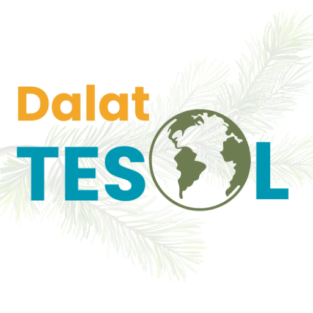By DalatTESOL
“Ethics is knowing the difference between what you have a right to do and what is right to do.”
— Potter Stewart
In academic research—whether you’re interviewing students, analyzing texts, or using ChatGPT to draft a survey—ethics is not optional. It is the invisible compass that keeps research credible, respectful, and socially responsible.
This article introduces key research ethics principles and explores the ethical challenges of using AI in research, especially relevant to MA students in TESOL and Applied Linguistics.
1. 📌 What Is Research Ethics?
Research ethics refers to the principles and guidelines that govern how studies are planned, conducted, and reported to ensure:
- Respect for human participants
- Integrity in data collection and analysis
- Transparency in reporting findings
- Fair use of technologies and tools
2. 👥 Ethical Principles in Human Participant Research
In TESOL/applied linguistics, much of your research involves real people: language learners, teachers, or classrooms. Here’s what you must consider:
✅ Informed Consent
Participants should voluntarily agree to join your study after being fully informed about:
- The purpose of the research
- What participation involves
- Any potential risks or discomforts
- Their right to withdraw at any time
📝 Always provide a consent form written in clear, accessible language.
🔒 Confidentiality and Anonymity
- Confidentiality: You must keep participants’ identities and responses private.
- Anonymity: Data should be stored and reported in a way that no one can trace it back to the individual (e.g., use codes or pseudonyms).
Example: Instead of saying “Mr. Tuan, an English teacher at XYZ High School…”, write “Participant T3, a secondary school teacher…”
🧠 Avoiding Harm
Ethical research must avoid physical, psychological, or emotional harm. In language education:
- Be sensitive to how your questions may affect self-esteem or confidence
- Don’t push participants to talk about trauma or discomfort unless ethically justified
🔄 Voluntary Participation
No one should feel forced or manipulated into joining your study. If you’re interviewing students you teach, ensure they know that saying no will not affect their grades or relationship with you.
3. 📊 Ethics in Data Collection and Reporting
Beyond dealing with humans, ethical issues arise in how you handle data and report it:
🔍 Transparency
Be honest about:
- How you collected your data
- How you analyzed it
- Any limitations or unexpected issues
Don’t hide inconvenient results just to “look better.” Ethical research includes negative or mixed findings too.
📉 Data Manipulation or Fabrication
Never:
- Invent data (fabrication)
- Selectively omit data points without explanation
- Alter transcripts or participant quotes to “fit” your claim
This is considered academic misconduct and can ruin your credibility.
4. 🤖 AI and Research: New Tools, New Responsibilities
As AI tools like ChatGPT, Grammarly, or Quillbot become widespread, students often ask:
Can I ethically use AI tools in research or writing?
The answer is nuanced. Let’s break it down.
🛠️ Appropriate Use of AI
✅ You may ethically use AI tools to:
- Brainstorm ideas
- Summarize literature (with manual verification)
- Generate first drafts or outlines
- Rephrase or improve grammar
- Simulate responses (with clear labelling, e.g., in prompts)
BUT you must be transparent and critical.
⚠️ Misuse and Ethical Red Flags
🚫 It’s not ethical to:
- Ask AI to write your full paper and submit it as your own
- Present AI-generated citations without checking them
- Use AI to generate fake data (e.g., survey responses, interview quotes)
- Let AI paraphrase sources without proper attribution
Many AI tools generate hallucinated citations—sources that don’t exist. Always verify using Google Scholar or your university library.
✍️ What to Disclose When Using AI
If you use AI in your research:
- Mention it briefly in the Methodology section
- Clarify what AI did and what you did
- Indicate any manual checking or editing
Example: “Initial brainstorming and draft phrasing were supported using ChatGPT (GPT-4), with all content fact-checked and revised by the researcher.”
🎓 Academic Integrity Policies
Most universities now include clauses on AI use. At Dalat University (or any academic institution), you’re expected to:
- Maintain authorship and originality
- Cite AI tools if used in a substantial way
- Consult your supervisor if unsure
🧠 Golden rule: If you’d be uncomfortable telling your lecturer you used an AI tool, you probably shouldn’t use it that way.
5. 🧩 Ethical Clearance and Review
Some graduate programs or universities require Ethics Committee approval before research can proceed—especially if:
- You’re working with minors
- You’re recording audio/video
- Your topic may be sensitive (e.g., gender, religion, disability)
Even if not required formally, write an ethics statement for your thesis or project.
6. 🔁 Ethics Is Ongoing, Not One-Time
Ethical research is not just about getting consent forms signed or avoiding plagiarism. It’s about developing an ethical mindset that values:
- Truth
- Fairness
- Transparency
- Respect
Every decision—what to include, how to report, what to share—should be guided by ethical reflection.
✍️ Summary
“Research ethics is not a form to fill. It is a commitment to others and to the truth.”
Whether you’re collecting interviews or collaborating with ChatGPT, always ask:
- Am I being honest and fair?
- Am I respecting participants and readers?
- Am I giving credit where it’s due?
If yes, you’re on the right track.
📌 By DalatTESOL
Feel free to use this guide in your thesis or coursework. If you found it helpful, share with your classmates or cite it in your ethics section!
